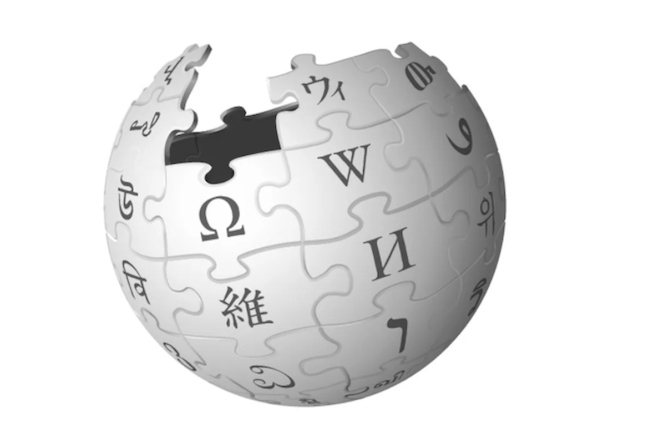“The biggest problem with online information today is that it is centralized and controlled by a very few players, that it benefits to have the most salacious and hype-ridden information. We can do much better.”
– Dr. Larry Sanger, Co-Founder of Wikipedia
Wikpedia’s co-Founder, Larry Sanger, thinks that Wikipedia is flawed. When asked if he was proud of what Wikipedia has accomplished, he said only “moderately”. Wikipedia is the world’s fifth most popular internet site, with millions of pageviews each month. You’d think he’d be exuberant about his accomplishments, but no.
Sanger has stated in an infamous Vice interview that out of the many flaws Wikipedia has the main one is: “Wikipedia never solved the problem of how to organize itself in a way that didn’t lead to mob rule”. He stated that the way the community is organized isn’t codified or decided upon in any type of constitutional manner. This means that “there might be some people who selectively apply rules according to positions that other people take on their pet issues.”

Everipedia: The Future of the Online Encyclopedia
Everipedia recently announced that they have hired Sanger to be the Chief Information Officer for the project. They also shared that they plan on moving the entire process of creating an article, making edits and storing the information to the EOS blockchain in the form of a “smart contract”.
For those of you who haven’t heard about Everipedia, it is a crowd-sourced wiki platform, similar to Wikipedia, with some notable differences in the editorial process and the way in which articles are published. Everipedia looks like they have taken note of the popularity of social media, and focuses not just on the content of the article, but the entire viewing experience.
There also are some added features such as up and down vote buttons. This seems to point to focusing on more “trendy” topics; just take a look at Everipedia’s Twitter vs Wikipedia’s Twitter to see the difference.
Where Does Blockchain Come In?
Instead of a central server, Everipedia will be run by two different networks. For smaller files such as web pages, the EOS decentralized network will be utilized but for larger files such as videos, Everipedia will be using the Interplanetary File System (IFPS) which is a type of decentralized server.
Also running on the EOS platform is the Everipedia token called the “IQ”, which they plan to implement. This will act as a sort of reward system for contributors who add valuable information to the Everipedia database. In a sense, these users will be “mining” coins with their additions.
“Just like miners who find blocks get newly minted bitcoin, these editors who are voted to have a very good state-change proposal get newly minted tokens,” says Everipedia co-founder, Sam Kazemian.
According to the Everipedia whitepaper (which is not yet published), 50 million of the 100 million IQ coins will be pre-sold during the ICO, with 30 million saved for rewards to contributors.
How It Will Work
Everipedia already uses “IQ Points” to award contributors for providing relevant and accurate information. Once the network is switched over to the EOS blockchain (scheduled for January 2018), previous users will be awarded a chunk of IQ coins. From then on, they can accumulate more coins as they continue to contribute.
In addition, contributors will have to offer up one IQ coin as collateral whenever they submit an article. If the article is deemed factual and approved, their coin will be returned. If it is found to be false or poorly written, the writer will not receive the return of their coin.
Benefits of Everipedia
This process will give contributors a financial stake in the whole process, which will effectively remove any spammy, low quality articles being published just to receive IQ coins. It will ensure that contributors put in their due diligence and only submit high quality contributions.
In addition, Theodor Foselius, Everipedia’s co-founder and CEO stated: “In places where Wikipedia has the most active user bases, like India, all these people edit for free”. He is really excited about the opportunity for users to be stakeholders in the encyclopedia they edit, and that they have the possibility to get monetary value in return for their efforts.

But the main and most profound improvement of this system, says Foselius, is that it will truly make Everipedia a peer-to-peer network. This means that the site will be able to keep running on its own, autonomously.
This is a particularly big deal in countries like Iran where censorship is strong. With the network decentralized, it will be effectively impossible for a nation to censor information because there will be no main point to attack or block.
Looking Forward
When Wikipedia co-founder Larry Sanger was asked if what would he change, if anything, about Wikipedia he stated:
[T]here needed to be a way for new ideas to be proposed and voted on by the community. And right now, I think Wikipedia is sort of stuck, and has long been stuck.
Everipedia, and more specifically blockchain, provides the answer to Wikipedia’s current condition which, according to Sanger, appears to be broken and run by “trolls”. It almost like it’s the “inmates [who] started running the asylum,” he said.
That’s a bold claim, and also a bit scary considering that most people “trust Wikipedia more than the news”.
But it looks like Everipedia is working to fix the problems which Wikipedia has. It has laid the groundwork to build a new peer-to-peer, decentralized network which will reward users for providing accurate and valuable content, and even help fight censorship.
More information about Everipedia can be found on their website: https://everipedia.org/. To learn more about EOS, see their website. To connect with the EOS community, check out their telegram channel.
Related: Why Blockchain is the Next Big Thing

